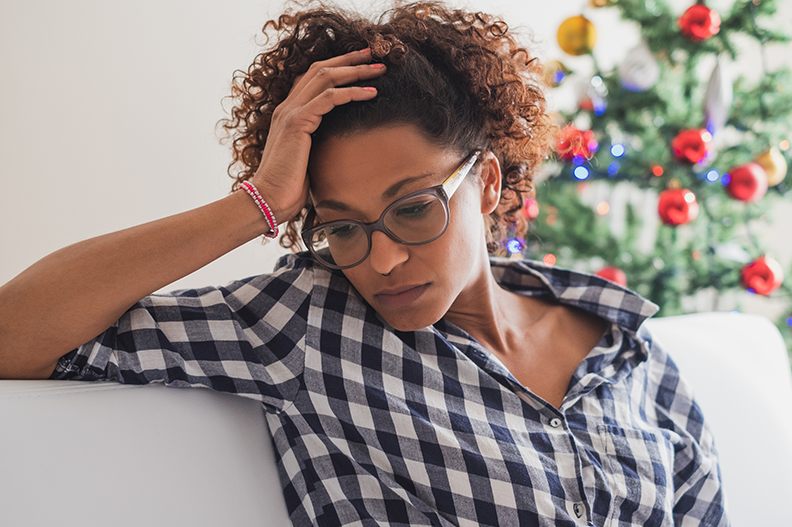The holidays are in full swing; parties, gifts, shopping, special events, and general merriment surround us at every turn. This season is joyful and fun for those that are in a place emotionally, mentally, and socially to enjoy it. For others? The holidays can be a lonely, difficult time.
Why Holidays are Hard
It is common for people that struggle with depression and anxiety to experience an increase in symptoms during the holidays. Everyone has their own perspectives, emotions, and sensitivities. Common triggers of mental struggle during the holidays include stress, fatigue, unrealistic expectations, over-commercialization, financial stress, and grief that is exaggerated during holiday events.
It’s common and not unhealthy to experience the flurry of the holiday season. You’re probably working with a pretty long to-do list, and worrying about finances to some degree. How do you know if it’s more than just a temporary feeling? How do you know if you need help? Stress responses that may call for medical attention include insomnia, headaches, excessive drinking, and overeating.
Seasonal Affective Disorder
The holidays are the kick-off to winter, which comes with its own set of blues. Perhaps it’s not the holiday season that burdens you emotionally, but the dark and cold lull that immediately follows the cheerful times. January 16 has been dubbed “Blue Monday”, as the middle of the first month of the year is known for being the very saddest. The days are dark and cold, the sun has set by early evening, and people struggle emotionally as a result. It’s important to know that these blues are not an isolated experience – there’s nothing wrong with you! We were created to need Vitamin D (found in sunlight) and the winter doesn’t do us many favors.
Small Steps to Feel Better
Your doctor is always ready and willing to talk with you about mental health struggles. There are a variety of treatments and tactics that can help. We’ve compiled a non-exhaustive list of strategies for coping with the holiday/winter blues. Try:
Verbalize realistic expectations for the holiday season.
- Avoid New Year’s Resolutions that are lofty or unattainable. Set one or two small, realistic goals!
- Pace yourself. Feel free to say “no” to events or roles that will burn you out.
- Avoid putting all your eggs in one basket, or prioritizing just one day of the holiday season.
- Make a list of 5 things you look forward to in the coming year.
- Try a volunteer or service project that helps you get out and about with other like-minded people. Serve at a food kitchen or adopt a family in need.
- Limit your drinking. Stick to 1 or 2 adult beverages during parties!
- Make time for real friends – not just big holiday gatherings. Invite a friend or two over to watch a favorite holiday movie in your pajamas.
- Give “experience gifts” instead of pricey items that will cause you financial strain.
- Bundle up and take a brisk walk in the middle of each day for 15-30 minutes. The vitamin D, fresh air, and physical activity will work wonders to reset your spirits.
- Focus on nutrient-dense foods and continue drinking water. The holidays are an indulgent time, but it’s still important to balance that out with healthy intake.
Here at Family Healthcare of Siouxland, mental health is health. We have social workers on-site at our clinics because we believe that all aspects of our health are integrated and important. Would you like to speak to a social worker about holiday depression and anxiety? Contact us today!

